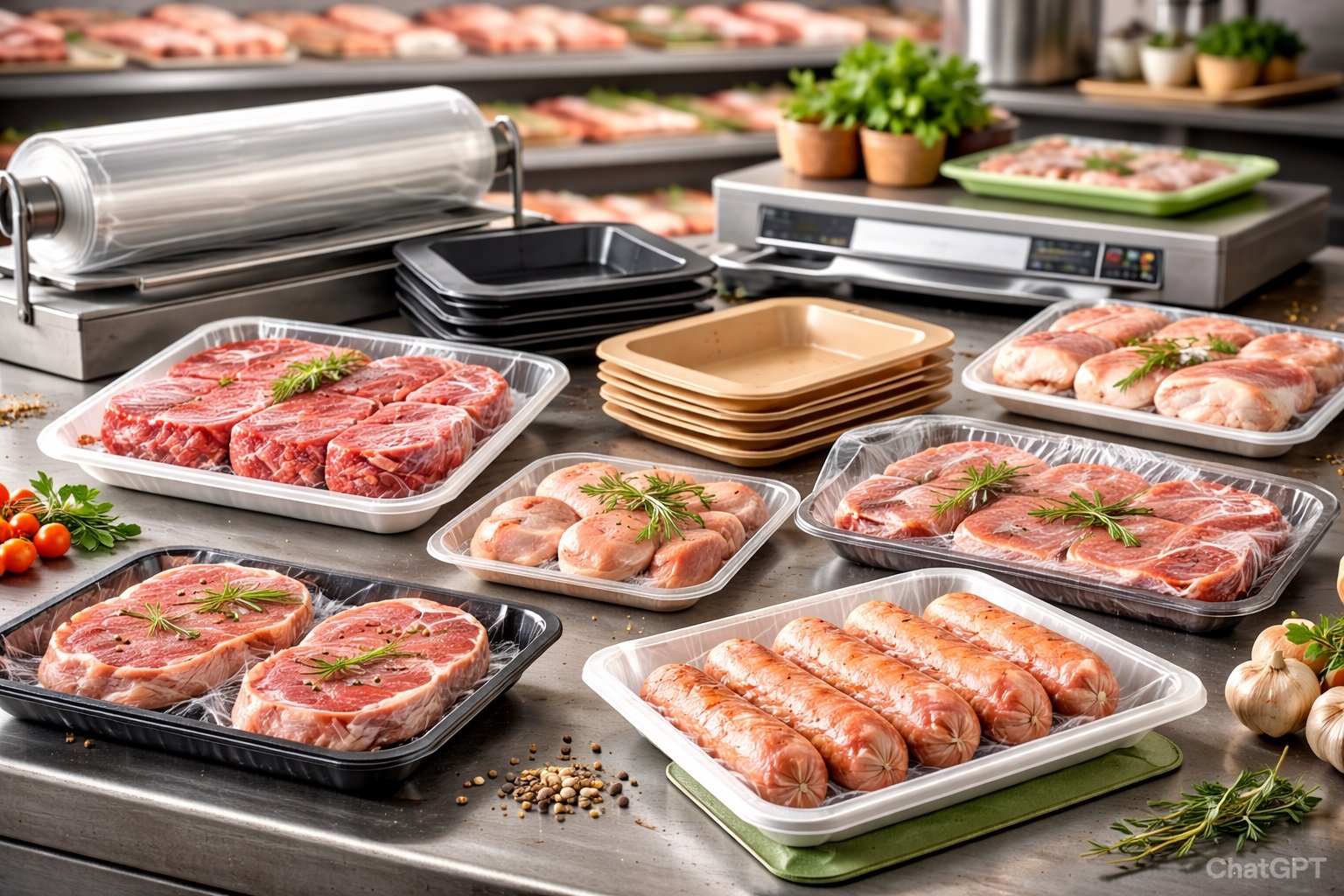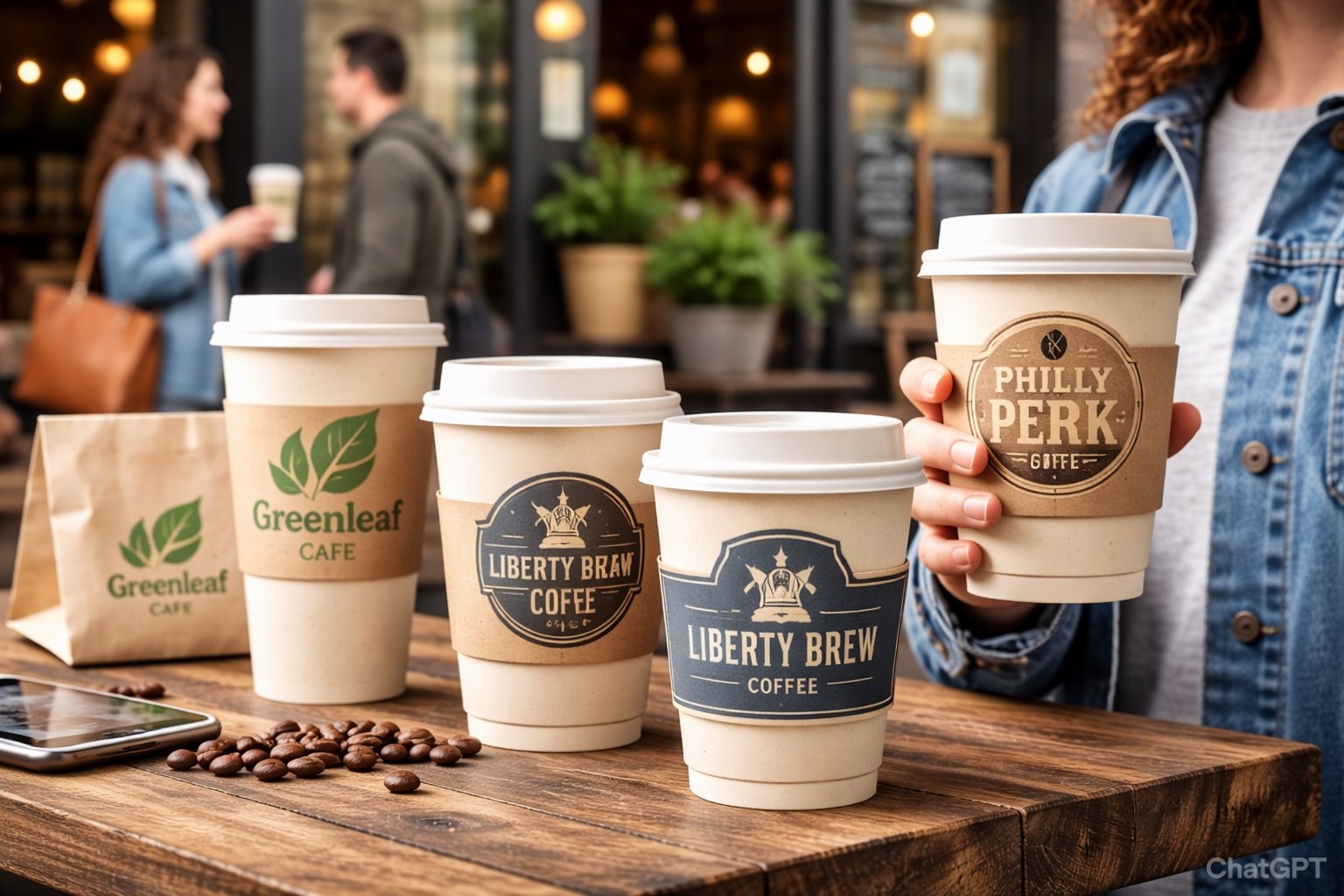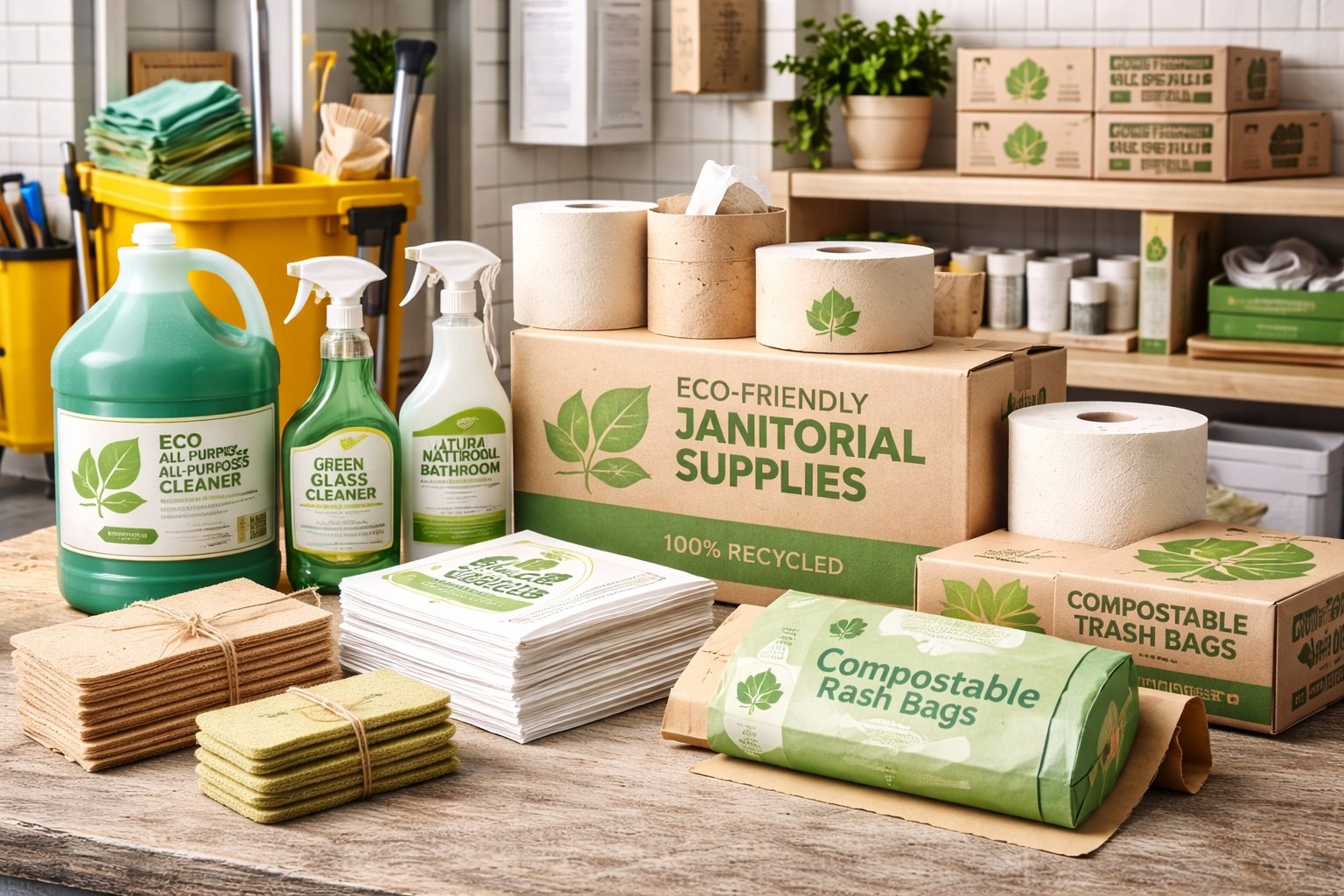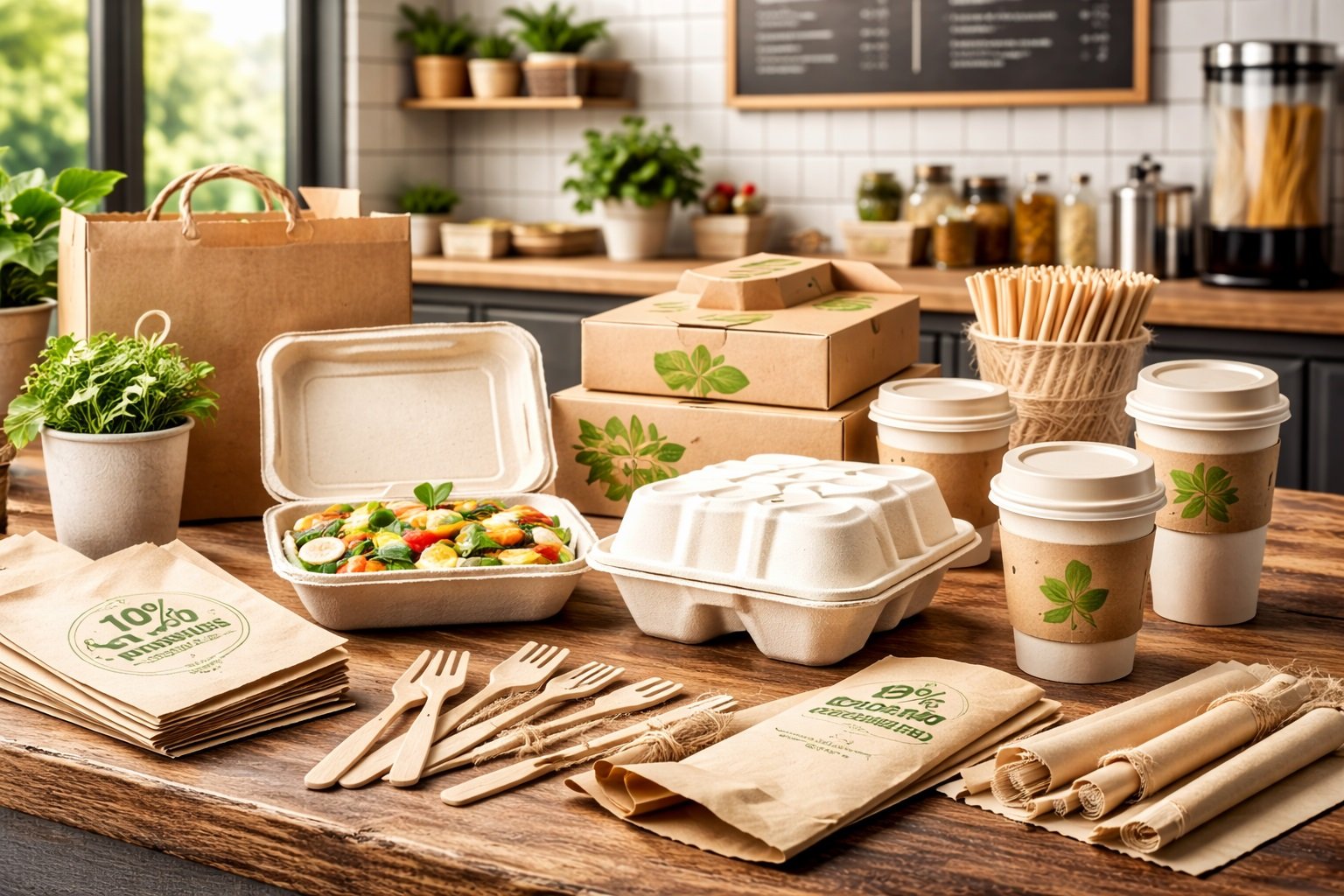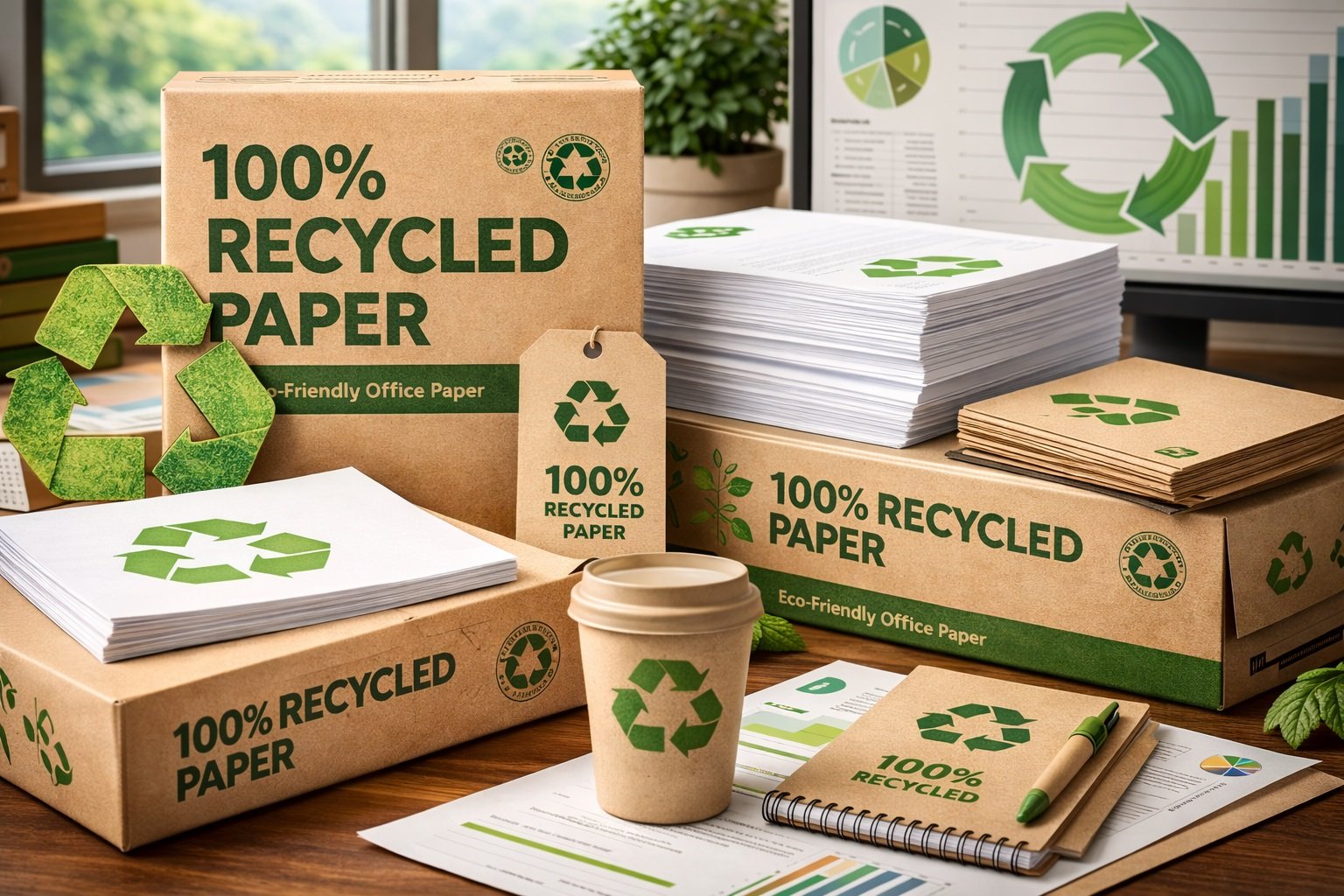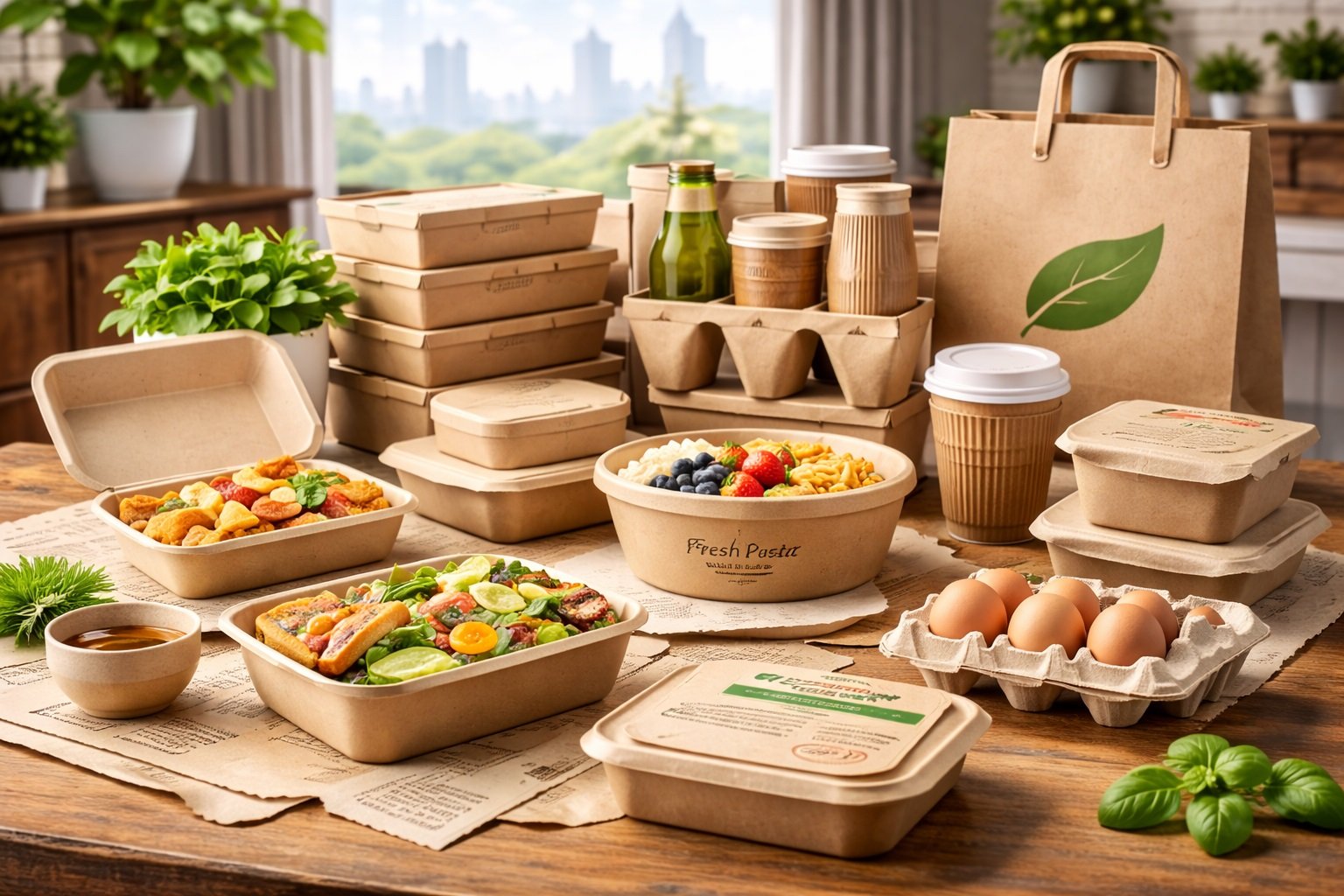The packaging and cutlery are used in packing these orders. However, restaurants have to pay heed to the customer’s preference for to use of biodegradable restaurant supplies.
In today’s world, the food business has become a growing industry. Social platforms like Instagram, YouTube, Snapchat, etc., are major contributors to the ever-increasing fame. Furthermore, demanding schedules make it hard for people to prepare meals at home. Innovations in technology enable such consumers to order takeout and deliveries at any time and from any location.
Therefore, every food establishment nowadays is equipped with supplies to ensure quality service for both in-house service, delivery, and takeaways. The packaging in delivery and takeaways is an essential factor to keep the food fresh.
Incorporating eco-friendly restaurant supplies enhances both presentation and hygiene. Sustainable practices strengthen economic resilience and positively impact the community’s well-being.
Paper-Based Restaurant Supplies and Their Varieties
They are disposable or semi-disposable restaurant supplies. Primarily made from paperboard and often crafted from renewable resources like sugarcane pulp.
These are famous for being compostable, recyclable, and biodegradable. Their application commonly lies in the preparation, service, and packaging of cuisines. A range of supplies is quite extensive; here are some of the varieties with their uses:
Restaurant Packaging and To-Go Solutions
- Fibre-based bags and boxes for salads, rice, noodles, and so on.
- Wrapping material for handheld meals like burgers and sandwiches.
- Paper soup cups with bioplastic lids.
- French fry holders.
- Corrugated pizza boxes.
Hospitality Service Items
- Eco-luxe kraft napkins.
- Disposable plates and cups (often coated or PLA lined)
- Cup sleeves for hot beverages.
- Paper straws.
Sanitation and Operational Supplies
- Paper towels for use in kitchens and restrooms.
- Pulp-based tray liners and coasters.
- Receipt rolls and order pads.
- Single-use paper chef hats and hairnets.
Perks of Adopting Plant-Based Restaurant Supplies
Every good thing comes back to you and people around you in some way. Here are some uses of adopting better supplies.
Low Impact and Eco-minded
The government and consumers are pushing towards the curtailment of plastic dependency. They aim to elevate paper as a smarter, long-term choice.
Many paper items naturally decompose, leading to less landfill waste accumulation. Thus, making them recyclable, unlike other alternatives like plastic.
Supports Positive Brand Image
It is a great way to market the brand and align with the values of eco-conscious customers. A well-designed restaurant supply can spark customer conversation and loyalty. If the style is ‘Instagrammable,’ it can be showcased on social media posts, boosting engagement.
Flexibility in Customization
Printing the logo, slogans, QR codes, and brand message is highly recommended to increase brand visibility. Such personalization functions as a mobile billboard, advertising the brand with no additional costs.
Cost-Effective and Accessible
Paper products are comparatively cheaper than high-grade plastics and other reusables. Many local and international suppliers have options for bulk purchases, cutting down per-unit costs.
Food Safety and Durability
The packaging is compliant with food contact material regulations. In short, the products are certified as suitable and non-toxic for containing edibles. They are grease-proof and have water-resistant linings while conserving freshness, temperature, and hygiene.
Portability and Convenience
Paper-based restaurant supplies are easy to grip and carry for staff and customers alike. They are stackable, optimizing limited space for storage and streamlined logistics. To suit all types of consumables, various forms of containers and carriers are available.
Facilitates Adherence Laws
Many regions are banning the use of plastics in industry. By switching to paper, one can stay ahead of protocols and evade any violations and penalties.
Consumer Preference
There is a growing expectation for businesses to prioritize sustainable packaging options. Despite the premium, customers gladly prefer compostable choices.
Downsides and Countermeasures
Every decision comes with a drawback. Here are some critical considerations that require careful attention,
Susceptible to Moisture
Once exposed to liquids or high humidity, the disposable essentials might weaken and disintegrate. To store soups and cold items, use wax-coated, laminated, and PLA-lined containers.
Heat Endurance Threshold
Some paper supplies lose integrity at high temperatures. They might not withstand the ferocity of ovens and microwaves. Choose thermal-resistant and bake-safe paperware.
Storage Conditions
Store the supplies in a cool and dry place. A damp and poorly ventilated inventory space can cause warping and mold buildup.
Legal Noncompliance
Many paper products are not always compliant with eco-packaging laws. Future-proof your operations to safeguard against disruptions by attaining certifications and eligibility grades.
Structural Load Bearing Capacity
There are chances of collapse when preserving heavy or oily meals. Use a double-walled or reinforced option for heavier and greasy contents.
Lack of Clarity
There is a common misconception that all plastic-coated items are green-certified.
Ink Safety Considerations
Some printing inks leak and spill on the food, making it harmful and unsanitary.
A Prominent Elective
Partner with American Eagle Paper Company Inc. for a greener and more eco-friendly tomorrow. We deliver custom packaging solutions, quality supplies, and innovative designs that optimize your product’s appeal. We offer efficient leak-proof packaging that saves you time and resources.
Conclusion
By embracing paper-based restaurant supplies, owners can reduce their ecological footprint. It is a way to enhance its popularity by meeting modern eco-aware consumer needs. All these initiatives are a way to support global sustainability efforts.

